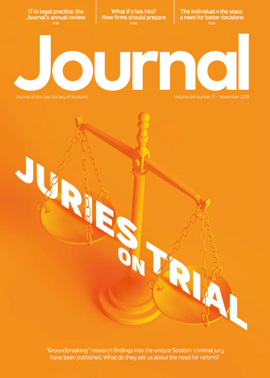Adjudication for tech disputes: does it go far enough?
The Society for Computers and Law (SCL) launched a new adjudication procedure for the resolution of technology disputes on 15 October 2019.
The key features of the procedure are that it is a three-month procedure for “technology” disputes – meaning any dispute arising from a contract for the provision of tech-related goods and services, including software development contracts, outsourcing arrangements, systems integration contracts, IT consultancy contracts, software licensing agreements, blockchain/smart contracts and cloud computing contracts. There is no restriction on the size or scope of disputes that may be referred.
Panel of adjudicators
There will be a pre-selected panel of adjudicators (set up and maintained by SCL) from which an adjudicator may be chosen for individual adjudications, and all adjudicators must satisfy the SCL adjudication eligibility criteria (to be published shortly).
Like adjudication under the Housing Grants, Construction and Regeneration Act 1996, the adjudicator’s decision or award is provisionally binding, meaning the parties may reopen the dispute in subsequent litigation or arbitration.
In practical terms this means that where an award requires payment of money by one party to another, the payment must be made and cannot be recovered unless a court or arbitral body subsequently reverses the award.
Construction adjudication
While the construction adjudication procedure has been hugely successful, with large numbers of construction industry disputes being resolved (or at least cash flow issues resolved one way or another), there is one important difference. The construction scheme is underpinned by statute. Both parties to the construction contract have the right to refer a dispute to adjudication as a matter of law. There have been many disputes around the operation of the adjudication scheme, but in general the courts have been reluctant to interfere with the decisions of adjudicators.
For the SCL scheme to work, parties will need to incorporate provisions in their construction contracts, in the same way as they do with arbitration. Even then, the construction industry has long followed model contracts, such as, for example the NEC suite of contracts or JCT contracts. Once using the standard contracts, the two parties to a contract would need to go to the effort of taking standard clauses, such as arbitration, out. The technology sector does not have similar standard contracts, and so it will be on a case by case basis that the parties will need to agree to the inclusion of the SCL procedure.
Legislation required?
By contrast, the SCL scheme is voluntary. The procedure will only operate if the parties agree to it. That is likely to be a significant stumbling block, because it is usually in one party’s interest to go slow, while the other party wants to move quickly. And because the process is voluntary, there is a danger that it becomes a tactical device in the overall strategy. So while this is a great step forward, like mediation, the next step should be to find a way to make the process mandatory and immediately available to both parties. Hopefully the next thing we will see is the Adjudication in Technology Disputes Bill!






